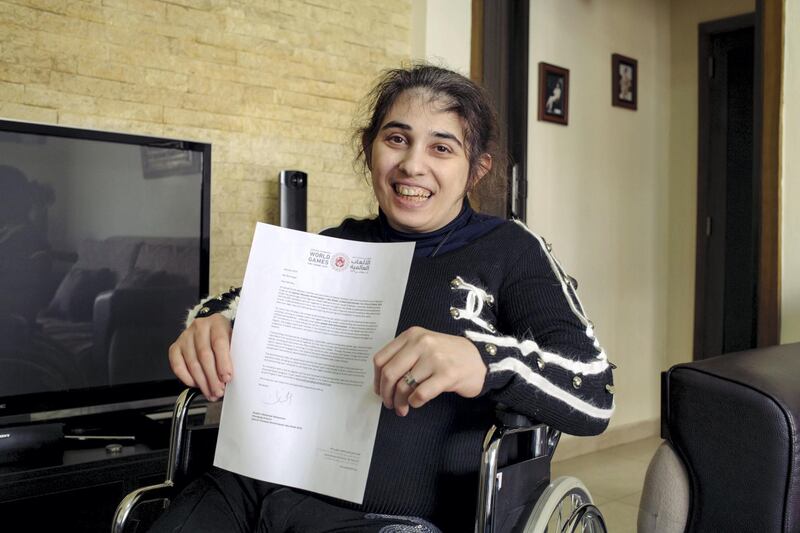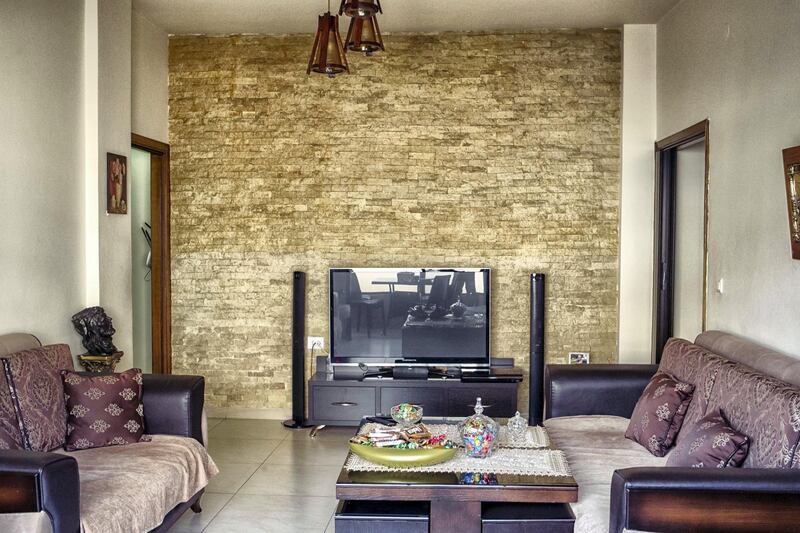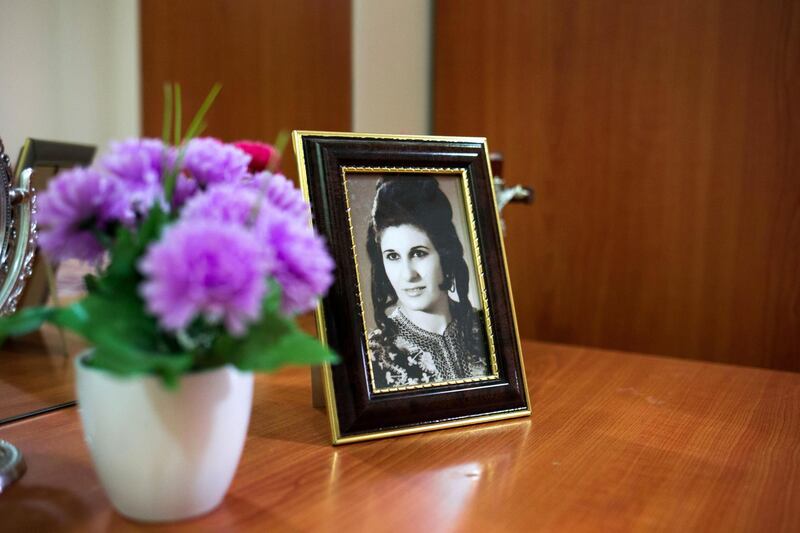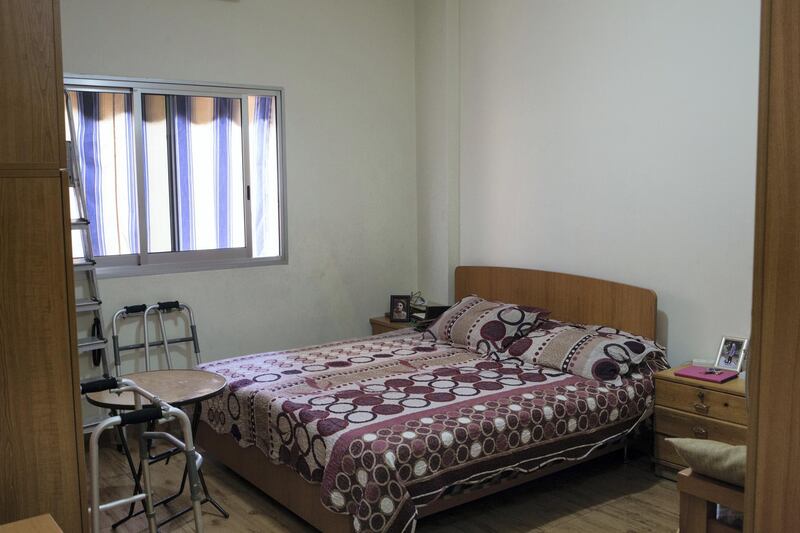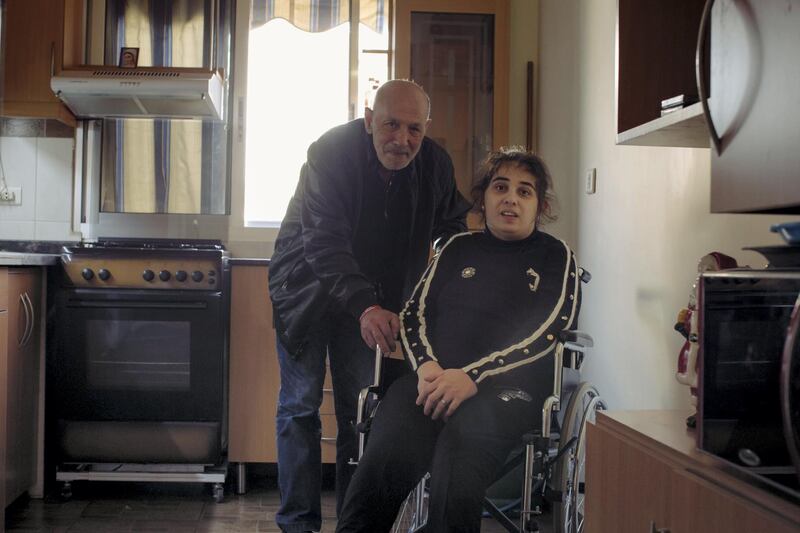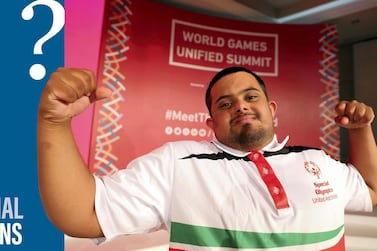A disabled woman in Lebanon who struggled to get around her flat and faced eviction says she cannot believe how her life has changed, courtesy of the UAE.
Last week, after seeing a report of her plight on TV, the Local Organising Committee of Special Olympics World Games Abu Dhabi organised for Rita Hajjar, 43, to be moved into a new flat modified for her needs.
Days later, Ms Hajjar sits on a wheelchair, bathed in the sunlight that streams into her new flat that she can move around with ease. On her lap is a letter inviting her to the Special Olympic World Games in Abu Dhabi in March.
“It is like I am living in a dream” says Ms Hajjar, who suffers from physical disabilities.
It is a far cry from the desperate situation she was in but a few weeks ago that forced her to appeal for help on national television.
Ms Hajjar could not move around her apartment easily and, unable to afford her rent, was at risk of eviction. She is cared for by her father, 74, but he too struggles to walk and speak after being hit by a car a few years ago.
About a month ago, she reached out to a friend who works at MTV, a local Lebanese television station, and appealed for help. Her interview was broadcast a few days before Christmas. Lying in bed and struggling to speak, Ms Hajjar said she had nobody left in the world but god and her father, who lives with her, and that she was in urgent need of a help.
Moved by the interview, the local organising committee of the Special Olympics games in Abu Dhabi bought a new flat for Ms Hajjar and her father in their neighbourhood in Beirut.
“The interview with MTV was very short. I didn’t have much hope that anybody would help me,” says Ms Hajjar.
And when MTV told her she would be receiving help from the UAE, she still did not believe it.
“I thought they were just being nice,” says Ms Hajjar.
“When they told me the Emirati ambassador would come to visit me, I still wouldn’t believe it”, she says laughing.
“Rita’s situation is important for us,” says Hamad Al Shamsi, the UAE ambassador to Lebanon, who accompanied Ms Hajjar to her new home last week.
Ayman Abdul Wahab, the regional president and managing director for the Middle East and North Africa of Special Olympics, and Michel El Khoury, a member of the Executive Committee, also met with Ms Hajjar at her new home.
“The response of Special Olympics World Games Abu Dhabi 2019 to help Rita Hajjar is in line with the UAE’s message of tolerance”, says Mr Al Shamsi.
Ms Hajjar had just one request for her new apartment: to stay in her old neighbourhood of Bourj Hammoud, an Armenian suburb of Beirut. Her request was granted and she now lives a few minutes away from her old home.
Ms Hajjar is now able to use her wheelchair to move between rooms instead of struggling with a walker. Access to the outside world used to be severely restricted for her because she had to be carried down the stairs but her new apartment building has a lift equipped with a generator — meaning it will continue to work during the frequent electricity cuts that are commonplace across Lebanon.
A friend of hers also stepped in to pay for a live-in house maid for the next two years.
Ms Hajjar has been invited to watch the Special Olympic Games, that are being held in the Middle East for the first time, in Abu Dhabi in March.
Until now, Ms Hajjar’s life has been marred by unlucky twists of fate. While her mother was pregnant with her, she was shot in the shoulder as the Lebanese civil war began in 1975. The shock caused her mother to deliver Ms Hajjar prematurely.
The family could not afford to have her placed in an incubator and as she grew older, she struggled to walk properly.
At age 12, Ms Hajjar fell down the stairs, injuring her head and suffering internal bleeding. She has been wheelchair bound since and has a speech impediment.
Access to affordable healthcare, particularly for people with disabilities, is difficult for low-income households in Lebanon. State of the art private facilities are available but are extremely expensive and public hospitals are overstretched and poorly equipped.
Ms Hajjar’s current access to a home adapted to her needs is an exceptional case.
